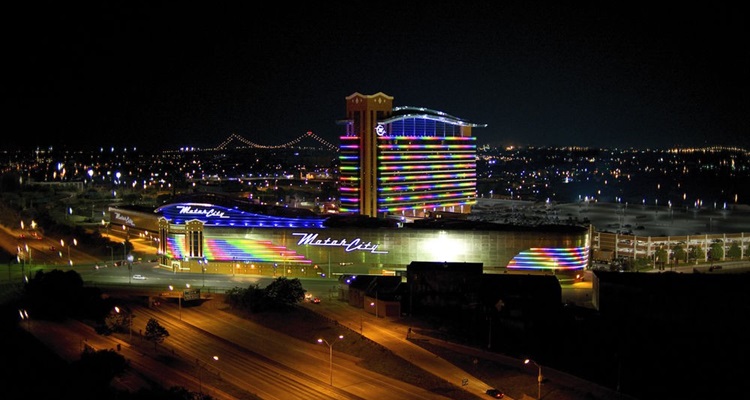To celebrate the 20th birthday of legislation that legalized commercial casinos in Detroit, the Michigan Gaming Control Board has revealed that the city’s three gambling establishments have since paid out more than $4.5 billion in tax with $1.9 billion of this going to public education programs throughout the state.
Supported by then-Governor John Engler, the Michigan Gaming and Revenue Act took effect on July 17, 1997, after voters signaled their approval via a state-wide referendum held the preceding November. The legislation permitted up to three casinos in Detroit, established the Michigan Gaming Control Board regulator and imposed an 18% tax rate on the venues’ gross gaming revenues.
The measure was subsequently amended in 2004 to lower the state tax rate to its current level of 8.1% although the three Detroit-area casinos are required to hand over 10.9% of their gross gaming receipts to the city, which is a move that has since benefited the “Motor City” to the tune of $2.6 billion.
“The Michigan Gaming Control Board grew from 19 people hired in 1997 to 138 people today,” read a statement from Richard Kalm, who has served as Executive Director for the Michigan Gaming Control Board since 2007. “The agency regulates not only the Detroit casinos but also parimutuel horseracing and charitable casino-style gaming. It additionally audits twelve tribes’ compliance with compacts covering 23 tribal casinos. For 20 years, the Michigan Gaming Control Board has been dedicated to protecting Michigan’s citizens by ensuring the integrity of gaming.”
The MGM Grand Detroit was the first Detroit casino to receive its license from the Michigan Gaming Control Board and the 400-room property began operations in July of 1999. The MGM Resorts International development was followed less than five months later by the MotorCity Casino Hotel, which is owned by Ilitch Holdings Incorporated, while the 30-story Greektown Casino Hotel now operated by Jack Entertainment welcomed its first players in November of 2000.
Along with the three Detroit casinos, the Michigan Gaming Control Board stated that it has licensed or registered more than 1,400 businesses including 800 native firms since 1997 that supply goods and services while the city of around 700,000 people moreover receives additional funds under development agreements negotiated with the gambling establishments.
“Thousands of Michigan residents work at the casinos and we license more than 6,800 of them,” read the statement from Kalm. “We conduct background investigations to determine the applicant’s suitability to work in the casinos.”
Under current regulations, the Michigan Gaming Control Board detailed that some employees of the casinos are exempt from its licensing procedures such as hotel and kitchen staff while it declared that more than 4,000 problem gamblers have utilized its lifetime voluntary exclusion scheme since the program’s inception in 2001.
“Through the years, we oversaw the move from temporary to permanent casinos, watched the addition of hotels and other amenities and weathered the Greektown Casino Hotel bankruptcy,” read the statement from Kalm. “The Michigan Gaming Control Board has worked hard for 20 years to represent the interests of Michigan citizens while allowing the casinos’ management to run their businesses with reasonable oversight. The Michigan Gaming Control Board shall ensure the conduct of fair and honest gaming to protect the interests of the citizens of the state of Michigan.”



